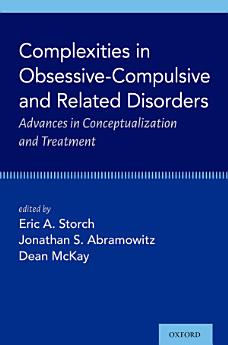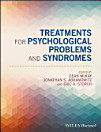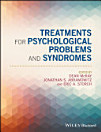Complexities in Obsessive Compulsive and Related Disorders: Advances in Conceptualization and Treatment
Eric A. Storch · Jonathan S. Abramowitz · Dean McKay
Sep 2021 · Oxford University Press
Ebook
440
Pages
family_home
Eligible
info
reportRatings and reviews aren’t verified Learn More
About this ebook
Obsessive-Compulsive and Related Disorders (OCRDs) have received considerable attention over the past two decades culminating with the inclusion of a new classification category of "Obsessive-Compulsive and Related Disorders" (OCRDs) in DSM-5. This group of conditions includes OCD along with two newly minted conditions (Hoarding Disorder and Excoriation Disorder) and others previously classified as Somatoform Disorders (Body Dysmorphic Disorder) and Impulse Control Disorders (Hair Pulling Disorder). The implications for research on these conditions, as well as their relations with one another, are significant since their aggregation is based on putative central mechanisms with limited empirical support to date. Indeed, the past decades have seen a dramatic surge in research on OCRDs. Such scholarship has occurred across several domains including clinical phenomenology, assessment, and psychological therapies. A complete synthesis of the emerging data across these domains would be beyond the scope of a single journal article or series of articles while having the ability to comprehensively discuss advances in the field and stimulating in these areas Many of the available textbooks, although meritorious in their own right, are outdated and do not address the most recent research advances and emerging clinical implications. Indeed, the past decade has seen a tremendous growth in knowledge on treatment, assessment, treatment augmentation, and basic science that is not contained fully within existing volumes (see discussion of specific texts further below). Thus, providing a comprehensive textbook that addresses recent advances will provide a much needed update to the field of OCRDs. Furthermore, recent texts primarily address OCRDs from a biological standpoint, neglecting psychosocial theoretical and intervention approaches that enjoy the most empirical support of any conceptual and treatment approaches for most of the relevant conditions. As a result, the literature has been dominated by a single predominant perspective, which does not fully represent the available data or perspectives of front-line clinicians and researchers alike. As researchers and clinicians will be increasingly focused on this topic in light of the changes to DSM-5 - together with the dearth of current objective available information - this book will be a timely addition to the literature in guiding clinicians in advances in OCRDs that will impact their practice. Third, a number of conditions outside the OCRD chapter in DSM-5 are often proposed as "related" to OCD (e.g., misophonia).
Rate this ebook
Tell us what you think.
Reading information
Smartphones and tablets
Install the Google Play Books app for Android and iPad/iPhone. It syncs automatically with your account and allows you to read online or offline wherever you are.
Laptops and computers
You can listen to audiobooks purchased on Google Play using your computer's web browser.
eReaders and other devices
To read on e-ink devices like Kobo eReaders, you'll need to download a file and transfer it to your device. Follow the detailed Help Center instructions to transfer the files to supported eReaders.






